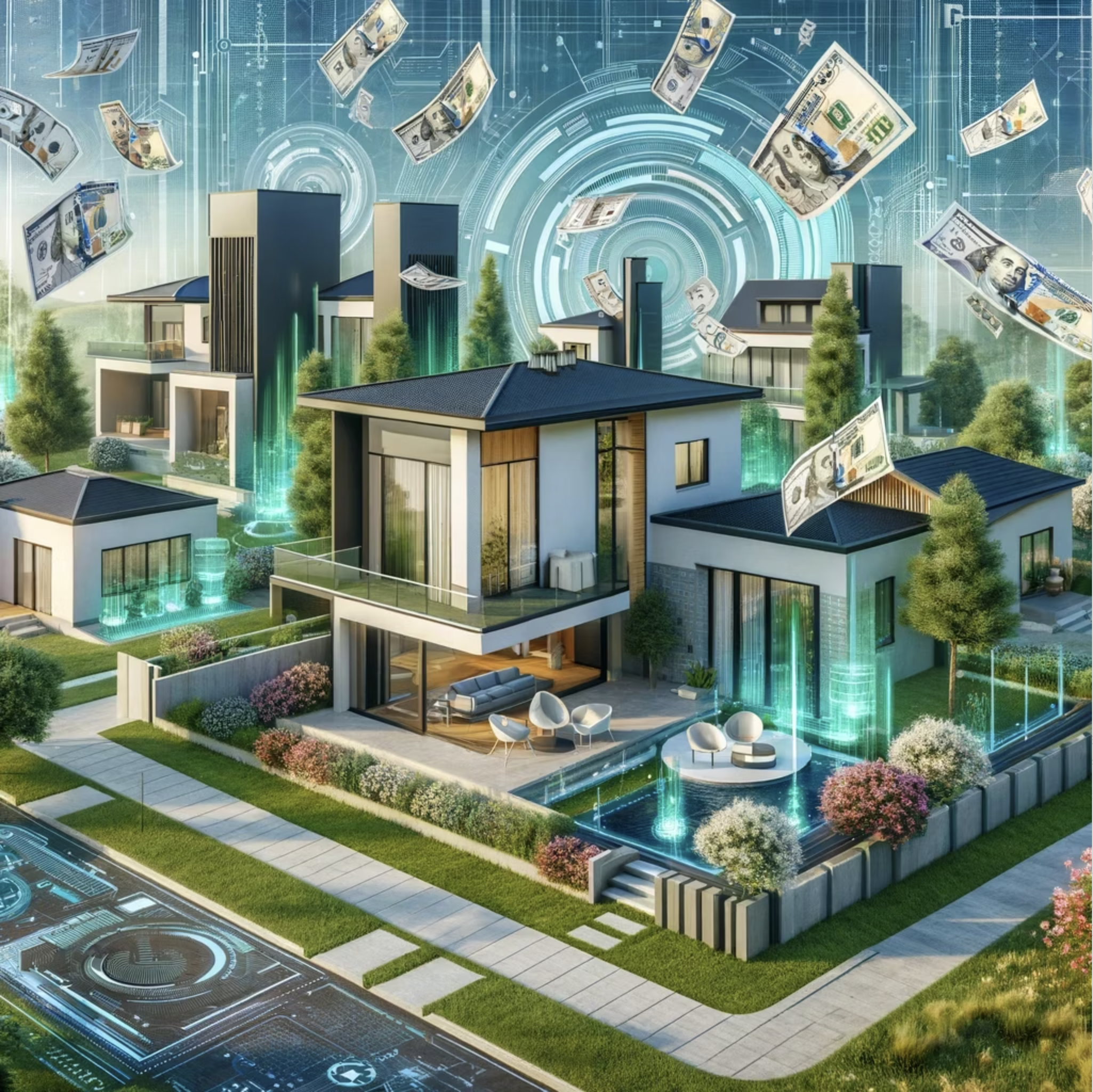Real Estate’s Realty in a New Reality (Transmission #286)

Hey there,
In one of our most thought-provoking Transmissions of the year (to date), we take to the future.
Imagine waking up 11 years from now - 2035 to be exact. Real estate has been revolutionized by new technologies and has evolved with the time. How do buyers discover the homes they are interested in? What about showings, open houses, and offers? How about MLSs?
2024 has already seen huge technological shifts with AI and the NAR settlement. Drew tackles multiple angles of what real estate could look like a decade from now, so you can start to envision (and plan for) the technologies and factors that will matter most to buyers and sellers.
As always, links surrounded by the ❇️ emoji indicate exclusive GEM Diamond content. If you would like to have access to all links, please consider GEM Diamond membership.
It’s the year 2035. It’s not the Wild Wild West any longer—real estate has evolved in some areas, transformed in others, and been revolutionized in certain ways. All driven by technology innovations (& regulation).
MLSs
Without the ability to share/negotiate compensation ever since the ❇️NAR settlement❇️, they’ve moved to strictly rulemaking, compliance, and reporting functions. The MLS and the local Realtor associations are one and the same. Down from 500+ a decade ago, there are 10 “super” MLSs (all with data sharing agreements amongst themselves) thanks to a heavy, heavy dose of consolidation on the heels of forced cost savings in order to remain solvent. We’ve finally reached a Nationwide MLS, of sorts.
With consumer portals generating all of the traffic and without compensation sharing, there’s little reason for agents to post detailed information and marketing assets for active listings. Instead, properties contain a simple flag of active along with a price, then hit the local MLS platform in earnest when they go pending. Commissions earned on both sides of the deal must be logged, with heavy fines and loss of license the recourse. While the MLS is not the default place agents search for current inventory any longer, it is still the de facto gold standard of real-time sold data.
Home Search
Zillow rules the day with buyers, complete with an ❇️Apple Vision Pro experience❇️. Having verified residence already, homeowners have to confirm a list price submitted by an agent as an added verification layer in a world where digital fraud has run rampant.
In a stroke of brilliance, Realtor.com remains a staple because NAR membership requires listings to be entered into its system within 24 hours of being advertised. That, combined with the resuscitation of ListHub by Realtor.com to ensure agents weren’t beholden to Zillow years ago, have all but replaced the old IDX system. Having bet big on real estate market intelligence years ago, a private version of Homes.com (the consumer version still exists as the number three portal), powered by ListHub, is used by agents far and wide to search “coming soon” and active listings, as well as track their competitors' activity.
FSBOs
Nationwide, market share is still sub 10%. Though it’s not the fault of new platforms making flashy attempts at bypassing the agent in favor of cost savings. Over the prior decade, most have come and most have also gone. Sellers want representation to minimize the risk of a financial investment that turns out bad.
Agency
The divorce is complete. Buyers are on the hook for their own representation, with plenty of financing options allowing buyers to draw from their mortgage to pay for it. Proving your worth as an agent is a far bigger undertaking than opening a door, with full-scale buyers presentations that convert at 30%, if you’re good. Every agent has an AI companion ensuring their time is spent with clients, not administrative.
Showings
Virtual showings are glorious AI productions and commonplace. Every showing request is followed with a standard, “Are you represented?” via ❇️an emotionally intelligent bot❇️. If not, that same bot will respond with: “The listing has open houses taking place Thursday from 5-7 pm, or Sunday from 1-5 pm. Come on by.” A potential buyer can’t make it at those exact times, or wants to see the property earlier? Tough luck, or they could lock in an agency agreement and pay a buyer’s agent what they’re worth.
Open Houses
With showings outlawed without signed contracts, there is always an open house party somewhere in the hood. Kind of like Costco on a Sunday afternoon. The whole neighborhood shows up because it’s a spectacle. Cookies are back in force, and brokers are finally embracing ❇️mini-museums, non-profit info/fundraising sessions❇️, and even backyard concerts. Heck, tech founders and furniture providers host Q&A sessions during open houses for the built-in crowds. Many open houses are live streamed in 3D. Meanwhile, numerous legit buyers are sleuthing through the shadows, cash in hand ready to pounce.
Offers
Every offer submitted is going through an offers platform, where it is reviewed by the seller’s agent and either accepted, denied, or countered. Verifying identity associated with offers is instantaneous, since buyers are forbidden to partake without prior third party verification. When accepted, verification of funds takes minutes and leads right into a completely digital closing experience. Every (non first-time) buyer is a power buyer.
The plethora of offers platforms have come and gone, and there is one dominant platform per local market. Nationwide, there are three big players divvying up market share each with their own impenetrable local strongholds. MLSs are minority shareholders in the offers company that serves their market, and have helped them become that fortress with seamless MLS integration. Sellers are still juicing listings with incentives in order to generate interest.
It’s a crazy world, ain’t it?
[Thank you to ❇️Eileen Romito, Nate Smoyer, Sep Niakan, Peter Meyer, and Bryan Copley ❇️ for feedback on this article.]
